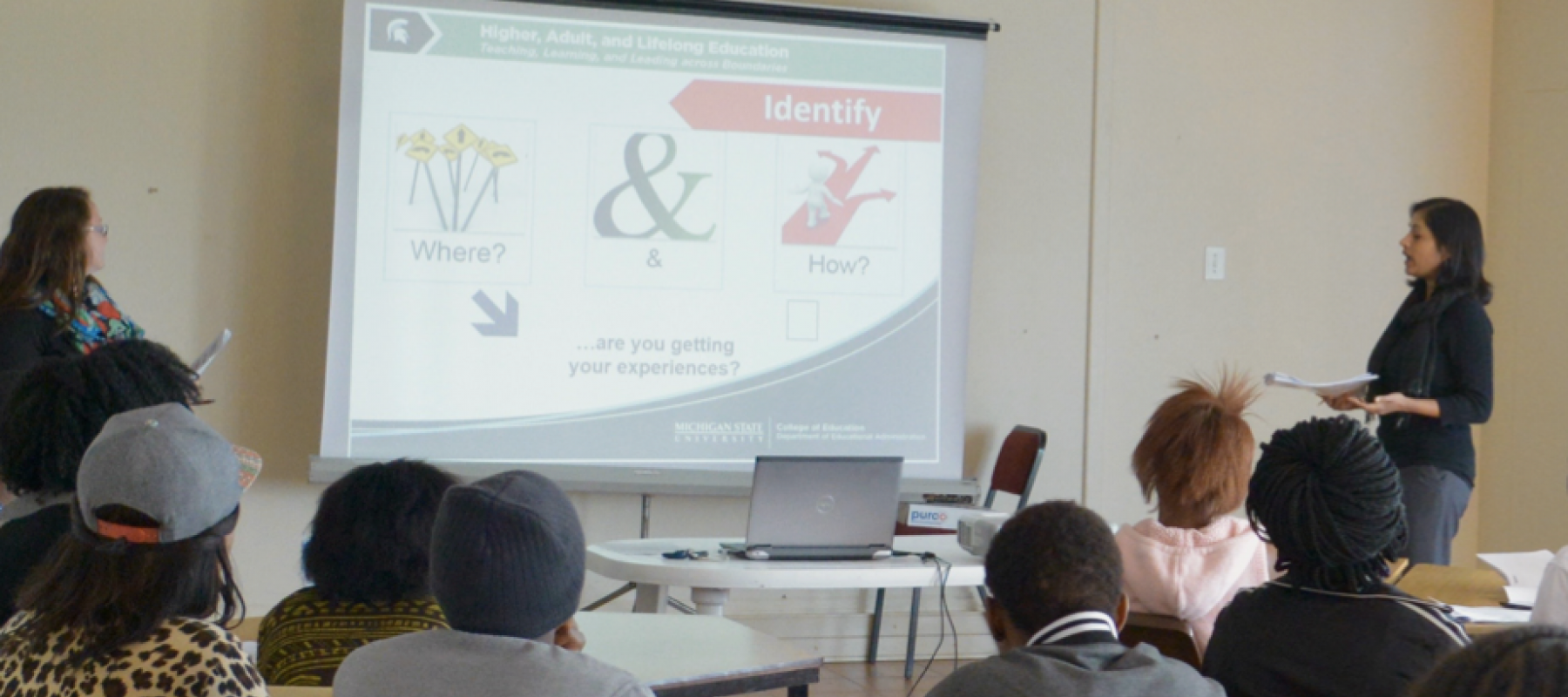
Professional Collaborative Experiences in South Africa
In the CHAE Report (Spring 2016), Dr. Wawrzynski discusses the mutual benefit of the professional collaborative experience between the Higher, Adult, and Lifelong Education (HALE) program and Nelson Mandela Metropolitan University in South Africa.
Written by Sapna Naik, doctoral student
For the last decade, Associate Professor Matthew Wawrzynski has been at the forefront of co-leading a professional collaborative experience for Higher, Adult, and Lifelong Education (HALE) students with his colleagues in the Center for Higher and Adult Education, Ann Austin and Roger Baldwin, to Nelson Mandela Metropolitan University (NMMU), a university based in Port Elizabeth in the Eastern Cape, South Africa. The project has helped researchers form a strong and mutually beneficial relationship between the two institutions.
In the experience co-led by Wawrzynski, several HALE master’s and doctoral students travel to South Africa for two weeks every two years as part of the professional collaborative experience offered through the Center for Higher and Adult Education. Preparation for the students’ experience consists of several components. One part includes a seminar where students learn more about the South African context by engaging with a variety of scholarly articles and readings, such as Nelson Mandela’s autobiography. Another component consists of working in small teams, under the direction of one of the HALE faculty leaders, to develop a set of workshops and presentations identified by colleagues at NMMU. When they arrive at NMMU, students present their workshops over the next week to a variety of administrators, faculty, and staff. Other experiences for the HALE students include visiting workshops given by NMMU staff.
During Wawrzynski’s early work with the collaborative experience, he along with NMMU colleagues, began developing a research project to better understand student co-curricular engagement in a South African context. Now, together with his research assistants on this project—Dawn Branham, Nate Cradit, Yeukai Mlambo, and Sapna Naik—Wawrzynski has further developed the survey, which has grown to include learning outcomes of student involvement. In addition to adding to the global literature on student engagement, the locally designed survey instrument allows specificity in measuring student involvement at NMMU.
Using the recent iteration of the survey, data are gathered on specific activities students participate in, the number of hours they participate, and their self-reported learning on outcomes specific to NMMU. More recently, Wawrzynski has worked to involve selected NMMU students in gathering data for the research project via tablet PCs and iPads. An incentive for NMMU students to collect survey responses is the ability to keep the tablet for their own academic and educational pursuits. The research team at MSU then runs the analyses on the data and works with colleagues at NMMU to write a report, which is disseminated to various stakeholders to help them understand the learning that is happening through co-curricular activities and to further develop their programming efforts.
Wawrzynski says, “One of the great benefits of working with NMMU is seeing the change being implemented every time we go back. Change seems to often happen in a short period of time (months), not years as it does in the U.S. You really get to see the fruits of your collaboration.” The workshops MSU graduate students present are aimed at making recommendations for improving student affairs practice at the institution. During his next visit, two years later, Wawrzynski is able to see changes that took place as a result of those workshops.
Wawrzynski believes the project has ample opportunity to develop in the coming years. He says, “every time we do the survey, it’s peeling a layer away” to better help understand student engagement in the South African context.



